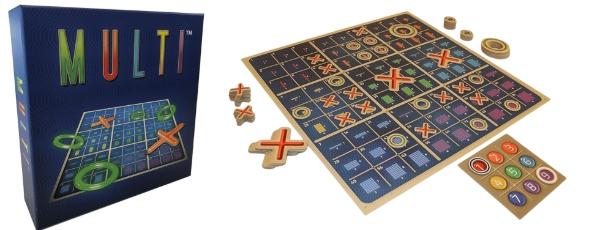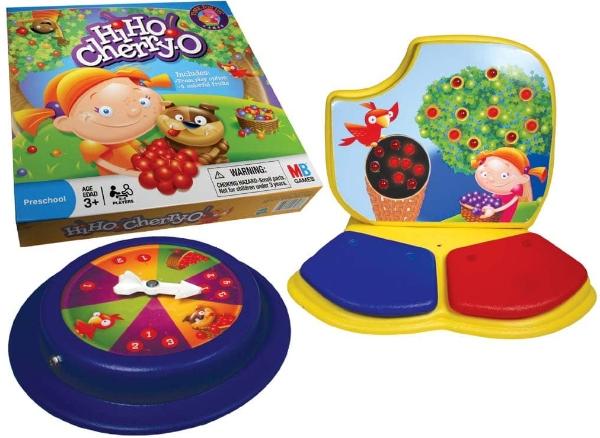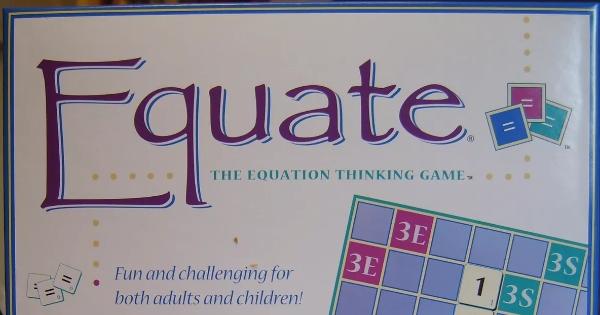Kids can play math board games to develop good number skills in a way that they will enjoy. They substitute worksheets with tasks that are thrilling and satisfying. These games promote problem-solving, team building, and critical thinking, which makes math less fearful. They are popular with parents and teachers since they are both entertaining and educational.
In this piece, we will look at the benefits of math games for kids and tips to pick the best games. We will also offer examples of games based on your kids’ age category.
Benefits of math board games for kids
A comprehensive review in Early Years found that when children regularly played board games several times a week under the guidance of a teacher or professional adult, their counting, addition skills, and ability to compare numbers (higher or lower) improved significantly. Similarly, a 2016 study in the Journal of Mathematical Behavior showed that linear number board games were especially effective in helping children grasp the concept of the number line and develop early arithmetic skills, supporting the “representational mapping hypothesis.”
Math may be a challenging subject for many children, and making it engaging can help alleviate the pressure and foster confidence. Board games that incorporate numbers and strategy provide a fun learning experience, allowing kids to develop critical thinking skills. These activities contribute to personal development and socialization, in addition to mathematics.



Enhances problem-solving and critical thought
With each round, children are exposed to new challenges and are therefore expected to analyze situations before making any decisions. These experiences enhance logical and decision-making skills.
In the long run, they get to know how to look at problems differently and develop new solutions. The habit fosters resilience and confidence in tackling math work, whether at school or in real life.
Builds teamwork and communication skills
Playing with each other also teaches the kids to cooperate, exchange ideas, and value the input of others. They also ensure that strategies are explained clearly as they listen.
Negotiation and compromise are also learned during group activities and are valuable skills that contribute to both academic and social development. Such interactions enhance relationships among peers, besides facilitating healthy communication and shared learning.
Encourages patience and resilience
Children tend to wait their turns, to repeat what has failed to be done, or to deal with defeat. These are the moments that help build patience and control. Experiences of any kind also foster emotional strength, teaching kids that they should persevere despite failure. This persistence is a vital character that goes well beyond learning numbers or calculations.
Turns learning into fun and interest
Children remain motivated when they are not subjected to learning, but they find it to be fun. Games take the place of stressful exercises with thrilling challenges and immediate outcomes. This positive encounter ensures that children can relate to math concepts without feeling afraid or tense. In the long run, children develop sustainable interests in learning that form the basis of long-term academic achievement.
Top math board games for different age groups
It is essential that children learn through activities that correspond to their age and skill level. With the right board games, math is fun for everyone. Little children should be able to count or match easier issues, whereas older children use a strategy to solve more complicated problems. The selection of age-appropriate options by parents and teachers guarantees fun and effective learning.
Best math board games for preschoolers



Play is the most powerful way for preschoolers to learn, as fun activities naturally introduce them to counting, shapes, and early number concepts. Math board games for this age focus on playful interaction, colorful designs, and easy rules. They help children develop a solid foundation for future math skills and make learning a more enjoyable experience.
- Hi ho! Cherry-o: It is a traditional game that teaches counting and recognition of numbers with the use of colored cherries. Children spin and gather cherries in baskets. The game builds early math confidence and fine motor skills through hands-on play.
- Count your chickens: The goal in this cooperative game is to get the chicks and safely get them back to the coop. It gives simple counting and cooperation, but not competition. Children practice numbers and collaboration in a fun, supportive environment.
- Sum swamp: Sum Swamp introduces addition and subtraction with dice rolls and colorful paths. The children go through the swamp by solving equations. The game enables the preschoolers to relate the numbers to the action.
Recommended math board games for elementary school kids
Elementary school children are prepared to play games that are based on addition, subtraction, and elementary geometry. It is during this phase that board games help children reinforce the skills they have acquired in class and make learning enjoyable. Such games also promote reasoning and thinking.
- Clumsy thief: A quick card game in which the players add numbers to come up with tens. It enhances the speed of addition and strategic thinking.
- Math Dice Jr.: The players roll dice and make equations to get to target numbers in a race. It strengthens the addition and subtraction in an enjoyable manner.
- Shape by shape: A geometry game in which children put colored shapes into various designs. It presents knowledge of spatial and elementary geometry.
Math board games for middle and high school students



Students in middle and high school find it productive to work with games that challenge them to do more than simple mathematical operations. The right board games test them in the fields of algebra, advanced problem-solving, and strategy. These tasks render abstract ideas more tangible, and students get to practice higher-level mathematical skills.
- Equate: A crossword-style board game in which number and symbol tiles are used by the player to make sets and equations. It strengthens algebra, order of operations, and logical thinking.
- Prime climb: A spiral board game with multiplication, division, and strategy. It builds number sense, problem-solving, and excellent knowledge of prime numbers.
- Fraction formula: A practical activity of a race to make fractions that add up to one. It plays with fraction knowledge, estimation, and higher-level math thinking.
Make math board games a fun, safe activity for your kids with FlashGet Kids.
Tips for choosing the right math board game
The importance of choosing the appropriate math board game is that children understand information better when they are provided with activities that are on their level. The right game can enhance classroom learning, foster problem-solving skills, and cultivate a positive attitude toward math.
Match age and skill level
Choose a game with regard to the current abilities of the child in math. Younger students learn better when there are some number recognition or counting games that are simple. The older children are well off with multiplication, fractions, or even algebra. The confusion can be avoided by matching games to the skill level and allowing for progress. Making a good decision helps children learn with pleasure, as they neither feel overwhelmed nor under-challenged.
Align with learning goals
Parents and teachers should focus on the specific skills they want children to develop. There are numerous fluency games, as well as games designed to develop geometry or logic.
Playtime becomes more meaningful for a child when the game aligns with specific learning goals. Practices can be easier to learn and apply with the help of focused practice in the form of enjoyable challenges. Intentional choice helps to make math games useful learning activities.
Keep personal interests in mind
The interest is enhanced when the children play games that represent their interests. Themes like animals, adventures, or colorful puzzles capture attention quickly. The moment the child likes the plot, they will practice math without a second bidding. Resistance to learning activities is minimized by choosing games on the basis of interests. This is the best way to make math a good and pleasant aspect of everyday games.
Add extra protection with monitoring tools
Most children spend hours playing math games on the internet, and forget about outside play, homework, or family time. Although such games can be helpful in learning, excessive use can lead to imbalance and hinder their overall development. That’s why parents should look for parental control tools that can help them manage their kids better.



One useful option with robust features is FlashGet Kids. It features a screen time limit that restricts the time kids can use their devices to play math board games. Once their time lapses, their device screen will shut off, forcing them to focus on other activities.
Faqs
The simplest counting or matching games can be introduced to children as early as age three. Students at an older age have the ability to advance to strategy, fractions, or algebra-based games.
Yes, they help children learn math in a fun, non-threatening, stress-free manner. Such games also develop problem-solving, logic, and critical thinking.
Yes, there are numerous versions in mobile applications such as Prime Climb and Sum Swamp. Parents are supposed to monitor the time spent on screens and promote balanced use.
Last words
The use of math board games makes learning interesting, enjoyable, and efficient among kids of all ages. They develop critical thinking, problem-solving, and teamwork skills, and minimize the number of fears they have. Selecting an appropriate game will guarantee that lessons are age-appropriate, skills-appropriate, and interest-appropriate.
Screen use should also be guided by parents, especially those with access to digital devices. Applications such as FlashGet Kids can be used to limit screen time and promote balance. With the right approach, math becomes both enjoyable and meaningful.

